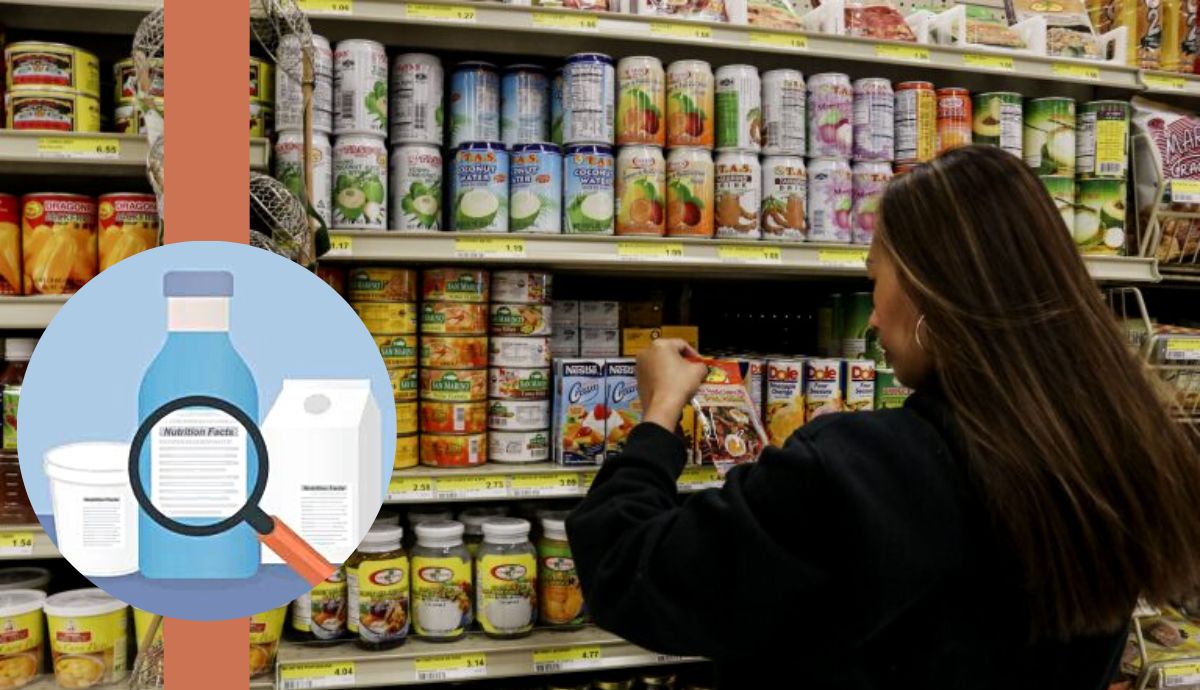Food Labelling Standards in India in comparison with Developed Countries
That little label on the back of the pack indicates a lot more information than meets the eye! Read along to find how food labelling standards differs around the world and the factors influencing them.

Food Labelling Standards are a yardstick to assess changing consumer preferences in a country, along with technological advancements in food processing and manufacturing, global competitiveness of food products and emerging public health and environmental concerns.
Allow me to break the narration on Food Labelling Standards into 3 parts to get a grasp on the subject, whilst bringing along the Indian food standards in each part.
The origins of food labelling standards
The origin of food labeling standards can be traced back to the early 20th century, when governments and consumer groups began to recognize the need for accurate and consistent information on food products. The first food labeling law in the United States was passed in1906. In the 1960s and 1970s, concerns about food additives and pesticide residues led to the development of labeling requirements for these substances. In the 1980s and 1990s, concerns about nutrition and health led to the development of nutrition labeling requirements.
Internationally, the Codex Alimentarius Commission, established by the United Nations Food and Agriculture Organization (FAO) and World Health Organization (WHO), has played a key role in developing food labeling standards. Codex standards are used as a basis for national regulations in many countries around the world.
Indian food regulation standards are relatively recent but are rapidly developing to adapt to global standards while focusing on public health and safety in the country.
United States
- Pure Food and Drug Act of 1906 was the first federal law to regulate the safety and purity of food and drugs in the US.
- Food, Drug, and Cosmetic Act of 1938 strengthened the regulatory framework for food safety and set standards for food labeling.
- Nutrition Labeling and Education Act of 1990 required all packaged foods to bear nutrition labeling, including information on serving size, nutrient content, and health claims.
- Food Safety Modernization Act of 2011 overhauled the US food safety system, giving the FDA more authority to regulate food safety and establish preventive measures
- Different agencies are engaged on the regulations;
- Food and Drug Administration (FDA) regulates most foods
- United States Department of Agriculture (USDA) regulates meat, poultry, and egg products
- Environmental Protection Agency (EPA): regulates pesticides and other chemicals used in food production
United Kingdom
- Food and Drugs Act of 1875 was the first UK legislation to regulate food safety and protect consumers from harmful adulteration of food.
- Food and Drugs Act of 1955 strengthened food safety regulation and established the UK Ministry of Agriculture, Fisheries, and Food (MAFF) to oversee food safety.
- Food Safety Act of 1990 modernized UK food safety regulation, introducing a comprehensive framework for food safety, including measures to prevent contamination and enforce food safety standards.
- Food Standards Act of 1999 created the Food Standards Agency (FSA), an independent government agency responsible for food safety and standards in the UK
India
- Indian Food Labelling Standards are relatively recent in history, but the pace of development is appreciable.
- Prevention of Food Adulteration Act of 1954 was the first major legislation to regulate food safety and prevent adulteration in India.
- Bureau of Indian Standards Act of 1986 established the Bureau of Indian Standards (BIS), which sets standards for food safety, quality, and labeling.
- Food Safety and Standards Act of 2006 created the Food Safety and Standards Authority of India (FSSAI), which is responsible for setting standards for food safety and regulating the manufacture, storage, distribution, sale, and import of food products in India.
- Food Safety and Standards (Packaging and Labelling) Regulations of 2011 established standards for food packaging and labeling, including requirements for nutritional information, allergen labeling, and other key information.
- Food Safety and Standards (Organic Foods) Regulations of 2017 set standards for the production, processing, certification, and labeling of organic foods in India.
Food Labelling Standards
Food labeling regulations differ from country to country nuanced by cultural requirements of its people, pace of food technology development and the history of food regulations itself. However, the major labelling requirements are harmonised across the globe common on factors such as;
- Name of the food
- Net quantity of contents
- Name and address of the manufacturer, packer, or distributor
- Ingredient list
- Food additives
- Food allergens
- Nutrition Information
- Use-by or best-before date marking
Unique food labelling requirements would include factors such as;
- Presence of Veg and Non-Veg Indicators in Indian Food Standards
- List of allergens would differ from one country to another (for instance, 14 allergens are recognised by the food standards in UK and 9 allergens in US, whereas 8 allergens are mandated by FSSAI in India)
- Labelling of wholesale and non-retail packs of food products is a mandatory requirement in Indian Food Standards
- Use of permitted additives could vary depending on the literature behind its effect on human health. For example, certain permitted additives used in US or India are banned in Europe. There could also be differences in the permissible limits of food additives across similar products in individual countries.
- Front of Pack Labelling – UK follows a mandatory FoPL regulation whereas similar regulations are still not in practise in US and India, where regulations pertaining to FoPL is still at a draft stage in both countries.
- Legal Metrology guidelines differ in each of the countries, specifically pertaining to font heights and styles.
- Indian Food Regulations mandate the mention of Expiry Dates on food products, which is different from the UK and US regulations
- Inclusion of the FSSAI logo and the License number in Indian Food Standards is a validation of the legitimacy of the food business and builds consumer trust in the product.
The Future of Food Labelling
- Digitisation of food labelling: Rapid strides are being to digitise food labelling to strengthen accuracy and compliance and move the labelling process form manual efforts to cloud based labelling management services enabled by artificial intelligence.
- Increased focus on transparency and sustainability: Consumers are increasingly interested in knowing more about the origins of their food, including how it was produced, processed, and transported. In response, some developed countries may introduce labeling requirements for sustainability or environmental impact.
- Greater use of technology: Advances in technology, such as blockchain and smart labeling, may be used to provide consumers with more detailed and accurate information about their food. These technologies could be used to provide information about a product's entire journey from farm to table, including information on sourcing, processing, and transportation.
- More emphasis on health and wellness: As rates of diet-related chronic diseases continue to rise, some developed nations may introduce more stringent requirements for health and nutrition labeling. This could include mandatory labeling for added sugars, trans fats, and other ingredients that are linked to health problems.
- Harmonization of global standards: With increasing globalization of the food industry, some developed nations may work towards harmonizing food labeling standards across different countries and regions. This could help to reduce confusion and facilitate trade, while ensuring that consumers have access to accurate and consistent information.
- Food labeling standards in India have evolved over time and are aligned with international standards set by Codex Alimentarius Commission (Codex). In comparison to developed countries like the United States and the UK, India's food labeling standards are generally aligned with international standards but have some differences in terms of the level of detail required. However, it is important to note that food labeling standards can vary significantly between different countries, and there is ongoing debate around the adequacy of existing standards and the need for more comprehensive, harmonised and transparent labeling practices.
About LabelBlind®
Established in 2018 and based in Mumbai, LabelBlind® specialises in the area of Digitising Food Labelling and Regulatory Compliance. FoLSol® by LabelBlind® presents India’s 1st Digital Food Labelling Solution. The SaaS platform supports Food Businesses to be Labelling Compliant and Build Consumer Trust. FoLSol® by LabelBlind® is designed to strengthen the food labelling ecosystem across a wide spectrum of services including, Packed Food Labelling, Menu Labelling, Exports Labelling, Nutraceuticals and Food Supplements Labelling and Labelling for Ecommerce players. FoLSol® Digital Food Labelling Solution is fast, accurate, and cost effective. The company is ISO9001 certified in its processes.

Rashida Vapiwala (Founder at LabelBlind®, Food Label Specialist, Ph.D (Food Science and Nutrition))
Rashida is passionate about solving problems for the food industry using technology. She loves creating tech-led solutions in the space of Nutrition.



